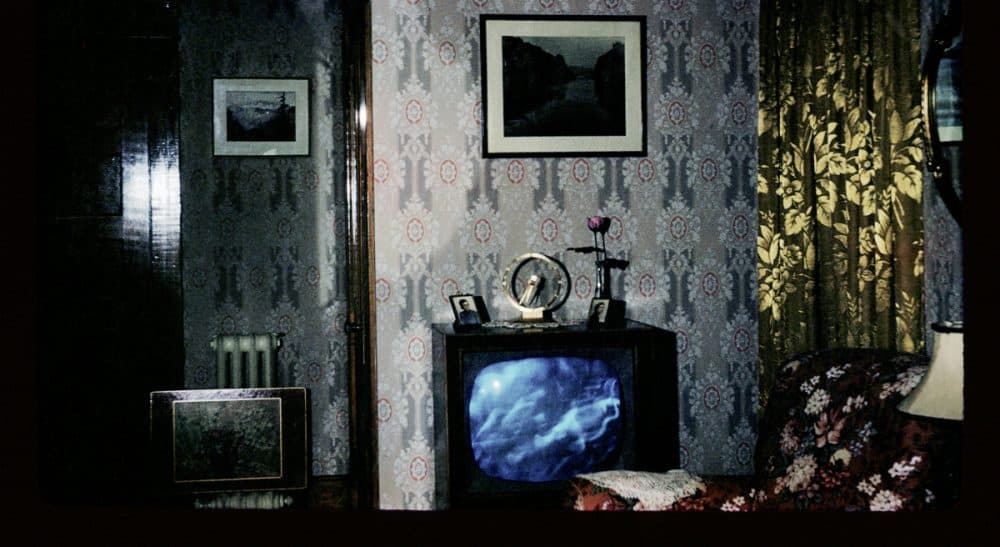Advertisement
What Price Convenience? Twin Peaks, And The Rewards Of Delayed Gratification

When I was 8-years-old, my family, like so many others, became engrossed in David Lynch’s television series Twin Peaks.
At our house, in the time and space between episodes, the all-important question loomed: Who killed Laura Palmer? One evening every week, their anticipation in high gear, my parents turned off the living room lights. Angelo Badalamenti's moody theme song swelled from the speakers.
And I was told to leave the room.
I was too young to watch, my mom told me. I wouldn’t understand. She guided me into my bedroom, which adjoined the living room, and shut the door.
Lucky for me, that door was well-placed at the back of the living room and swung in the direction of my bedroom. As soon as my parents focused on the show, I would ever so gently open the door, careful to keep it from creaking. Sitting on the floor, my back up against the closet wall, I could (usually) watch undetected.
Waiting each week to watch what I was not supposed to watch (and occasionally getting caught) made the watching all the better.
Disobeying, of course, was a thrill. I spied on an adult world full of damn good coffee, secret ledgers and steamy romance. Agent Cooper’s classic dream sequence, with its weird red room and dancing Man from Another Place, became all the more mysterious and terrifying. Waiting each week to watch what I was not supposed to watch (and occasionally getting caught) made the watching all the better.
Twin Peaks swept the nation a little less than 25 years ago, preceding a quarter century that has seen a rapid rate of technological change. Many of us feel that change most acutely in our daily lives, as consumers. Since 1990, for example, the way Americans watch television has dramatically changed.
Current technologies offer consumers convenience: instant content, instant access, instant gratification. But convenience leaves little room for the rituals that might contextualize and, by extension, enhance a past-time, like gathering around the television at the same hour on the same night of the week, every week.
Advertisement
Sure, Twin Peaks was a great show. But its greatness, like any good film, novel or painting, owes as much to its artistry as to the way it is experienced.
In the winter of 2002, I decided to track down both seasons of Twin Peaks for a thorough, less clandestine, viewing. I found VHS copies of the first season near my dorm in Beacon Hill, at Mike's Movies. (Beginning the following summer, I would work there for four years, watching the decline of the VHS, the rise of the DVD, and the ushering in of Netflix, with its doomsday toll for the independent store itself.)
The first season was easy enough to find and delicious to watch. Hooked, I was eager to track down the second season, but that proved more difficult. Foiled in video stores from Boston to Cambridge, I got lucky at a Blockbuster in Brookline. On a night of near-blizzard conditions, I navigated the unfamiliar-to-me Green line to Coolidge Corner and trudged for what seemed like miles to the Blockbuster, a destination that, in my mind, might as well have been the Temple of Secrets.
It seems silly now, but I remember that journey as epic, a real odyssey. I was giddy and anxious with anticipation.
I relished the second season, not because it's good — much of it is not — but for the triumphant pleasure of watching after my struggle to find it.
...convenience leaves little room for the rituals that might...enhance a past-time, like gathering around the television at the same hour on the same night of the week.
Late last year, when I heard the news that David Lynch had agreed to revive the series, a quick internet search led me to the complete series on Hulu. Surprise! There they were — Laura, Agent Cooper, the one-armed man — infinitely easy to access. I didn’t even need a television; I watched on my Chromebook.
And what can I say about that experience? When the familiar theme song first piped through the raspy speakers, I was excited, but not for long. After watching only a few episodes, almost out of duty rather than desire, I realized I was only half-engaged.
Maybe I’ve just seen the show too many times to be thrilled by it. Maybe I’ve hardened with age, and what seemed mysterious when I was young no longer does.
Or maybe convenience has its price.

